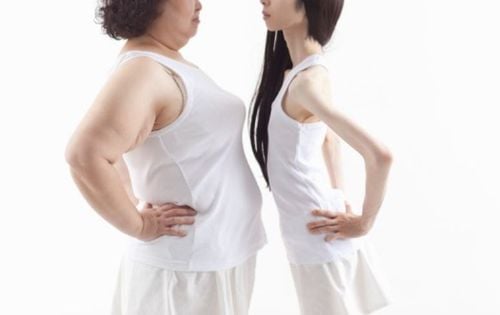Ubidecarenone, also known as Coenzyme Q10 (CoQ10), is a compound found in all living cells of animals, including humans. Today, extensive research has led to the widespread application of CoQ10 in medicine and the beauty industry.
1. What is Ubidecarenone?
Ubidecarenone, or Coenzyme Q10 (CoQ10), is a compound present in all human cells, with the highest concentrations found in the liver, kidneys, heart, and pancreas.
This compound was first discovered in the United States in 1958 by Dr. Kerl Folkers. Following numerous trials, CoQ10 has been extensively utilized in medical practice for the treatment of cardiovascular diseases and various other conditions. Some of the mechanisms of action for CoQ10 include:
• Cardiac action: After oral ingestion, Ubidecarenone (CoQ10) is absorbed into the body through the lymphatic system and subsequently penetrates the mitochondria within cells. It has been confirmed that CoQ10 acts directly on ischemic cardiac muscle, enhancing oxygen utilization efficiency in those regions. This allows the myocardium to maintain high levels of energy production, even under conditions of myocardial ischemia. Clinical evidence has demonstrated CoQ10’s effectiveness in addressing cardiac dysfunction, with assessments via resting and exertional electrocardiograms confirming its role in restoring impaired cardiac function. Furthermore, some studies indicate that Ubidecarenone is effective in improving symptoms of congestive heart failure accompanied by reduced left ventricular function due to chronic myocardial ischemia or hypertension.
• Antioxidant effects: One of the prominent roles of CoQ10 is energy production utilized by cells, while also neutralizing free radicals present in the environment. Additionally, CoQ10 acts as an inhibitor of oxidative stress (the condition characterized by excessive accumulation of harmful free radicals in the body). Consequently, it is applied in various conditions such as Parkinson's disease, chronic inflammation reduction, cancer prevention, blood glucose control, and skin aging mitigation.
• Moreover, CoQ10 is recognized for its protective effects against UV radiation, facilitating skin wound healing, slowing down wrinkle formation, and reducing crow's feet.
Ubidecarenone is formulated in various forms and dosages, including: 10mg tablets; capsules containing 20mg, 30mg, 50mg, and 100mg. The appropriate formulation and dosage may vary depending on individual circumstances.
2. Indications for Ubidecarenone
Due to the effects of CoQ10 on the body, it possesses the following indications:
• Supplementing energy for muscles, particularly for the myocardium, which helps alleviate symptoms of angina, circulatory insufficiency, myocardial ischemia, arterial hypertension, palpitations, and tachycardia. Reducing the risk of complications for patients with cardiovascular diseases;
• Alleviating myalgia: Some studies indicate that direct administration of Coenzyme Q10 can reduce pain and muscle soreness;
• Migraines: It has been observed that CoQ10 may help reduce the frequency of migraine attacks;
• Additionally, the medication is utilized for the prevention and treatment of atherosclerosis;
• Treating chronic fatigue syndrome and reduced physical activity capabilities due to Coenzyme Q10 deficiency, particularly prevalent in the elderly;
• Diminishing the formation of wrinkles on the skin: Adequate supplementation of CoQ10 may help protect the skin from UV radiation, promote wound healing, and prevent wrinkle formation;
• Supporting wound healing processes: CoQ10 helps reduce oxidative stress, accelerates wound healing, promotes collagen formation, and diminishes skin inflammation.
3. Dosage and administration of Ubidecarenone
Administration: The medication should be taken directly with water and is recommended to be consumed after meals. Dosage:
• The standard dosage for adults is to take one 10mg tablet three times a day;
• For adults with heart failure: 50 to 150 mg per day, divided into two to three equal doses;
• Typical dosage for individuals experiencing angina: 150 to 600 mg per day, divided into three doses.
4. Considerations for Using Ubidecarenone
When using Ubidecarenone, it is important to note:
• Although CoQ10 is classified as a benign compound, there have been instances of adverse reactions such as gastric discomfort, appetite suppression, nausea or vomiting, and diarrhea; however, these occurrences are infrequent. Individuals with vitiligo should exercise caution when using CoQ10, as it may inhibit the enzyme responsible for melanin production; hypersensitive reactions may also occur, but are extremely rare.
• It is contraindicated for individuals with a history of allergic reactions to this medication.
• For pregnant women, there is insufficient evidence regarding its safety for the fetus. Therefore, it is advisable to consult a physician regarding dosage and potential side effects.
• Medications should be taken strictly according to the physician's instructions. Avoid self-adjusting the dosage.
• When using Ubidecarenone, the possibility of drug interactions may occur, particularly with statins and anticoagulants. Thus, it is essential to inform the physician of all medications currently being taken.
• Store the medication at room temperature, avoiding humidity and direct light.
Ubidecarenone is utilized as an adjunctive treatment for cardiovascular diseases. However, regular supplementation should only be undertaken with the physician's consent to prevent adverse reactions in the body. Furthermore, CoQ10 is also present in certain foods, allowing for dietary supplementation.
To arrange an appointment, please call HOTLINE or make your reservation directly HERE. You may also download the MyVinmec app to schedule appointments faster and manage your reservations more conveniently.
To arrange an appointment, please call HOTLINE or make your reservation directly HERE. You may also download the MyVinmec app to schedule appointments faster and manage your reservations more conveniently.








